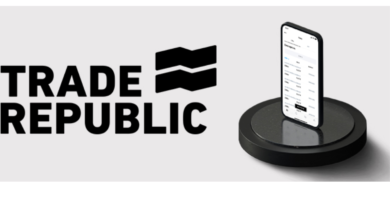
Purchasing a used car can be a savvy financial decision, offering significant savings compared to buying a new vehicle. However, to ensure you’re getting the best deal, it’s crucial to approach the buying process strategically. Here are expert strategies to help you navigate the used car market, ensuring you secure a reliable vehicle at a fair price.
1. Research Before You Shop
The foundation of any smart car purchase starts with research. Before stepping foot in a dealership or contacting a seller, it’s essential to understand what type of car you want and what it typically sells for. By browsing websites that specialize in used cars, such as Kelley Blue Book, Edmunds, or Autotrader, you can compare prices across models, years, and conditions. This will give you a benchmark price to work with, helping you identify when a deal is truly good—or when it’s too good to be true.
In addition to price, research the vehicle’s reliability, potential maintenance costs, and consumer reviews. Some used cars are more prone to problems than others, so doing your homework can help you avoid future headaches.
2. Check the Vehicle History
A vehicle’s history can tell you a lot about its condition and whether it’s a wise investment. Before agreeing to a deal, always ask for the car’s Vehicle Identification Number (VIN) and use services like CARFAX or AutoCheck to run a report. These reports can show you:
- Accident history
- Title status (clear, salvage, etc.)
- Previous ownership details
- Mileage accuracy
- Maintenance records
If the report reveals a history of major accidents or title issues, it’s probably best to walk away. On the other hand, a clean report can give you the peace of mind that you’re buying a well-maintained used car.
3. Consider Certified Pre-Owned (CPO) Options
While used cars are generally more affordable than new ones, certified pre-owned (CPO) vehicles offer an additional layer of assurance. These cars have undergone thorough inspections, repairs, and often come with extended warranties. While CPO vehicles may be priced higher than non-certified used cars, the extra cost can be worth it for the peace of mind they provide.
CPO programs vary by manufacturer, so it’s essential to understand what’s covered under each certification. Some include roadside assistance and maintenance, while others may offer more limited protections.
4. Negotiate Like a Pro
When it comes to buying a used car, don’t be afraid to negotiate. Sellers often set higher asking prices expecting buyers to haggle. To negotiate effectively:
- Use the research you’ve done to cite comparable prices for similar vehicles.
- Be polite but firm in your offer, and be willing to walk away if the seller won’t meet your price.
- Ask for discounts if the vehicle has any minor cosmetic issues or if it’s been on the market for a while.
Sellers are often motivated to make a deal, especially if the vehicle has been sitting unsold. By showing that you’re an informed buyer, you can often secure a better price.
5. Get a Pre-Purchase Inspection
Before finalizing any purchase, it’s crucial to have the car inspected by a trusted mechanic. Even if the car looks flawless on the surface, there could be underlying mechanical issues that aren’t immediately apparent. A pre-purchase inspection allows a professional to check the engine, transmission, brakes, and other vital systems to ensure they’re in good working order.
Many used car sellers will agree to an inspection, and if they refuse, it’s a red flag. Spending a small amount on an inspection now can save you thousands in repair costs down the road.
6. Timing Matters
Believe it or not, when you buy a used car can impact how much you pay. For example, dealerships often have sales quotas, so purchasing at the end of the month can give you leverage as salespeople are eager to hit their targets. Additionally, shopping for used cars during off-peak times, like the winter months, can often result in better deals, as demand tends to be lower.
7. Consider Financing and Additional Costs
While price is a major factor in getting a good deal on a used car, don’t forget to factor in additional costs like taxes, registration, insurance, and any necessary repairs or upgrades. If you’re financing the car, shop around for the best loan terms. Pre-approval from a bank or credit union can give you an idea of your budget and prevent you from being pressured into dealership financing that may have higher interest rates.
Conclusion
Buying a used car can be a rewarding experience if you approach it with the right strategy. From doing thorough research and negotiating skillfully to getting the vehicle inspected and understanding the total cost of ownership, these expert tips can help you secure a great deal. By following these steps, you can drive away in a reliable used car that fits your needs and budget, all while avoiding common pitfalls.
In the end, patience and preparation are key. Don’t rush the process, and be willing to walk away if the deal doesn’t feel right—because the perfect used car is out there waiting for you.




